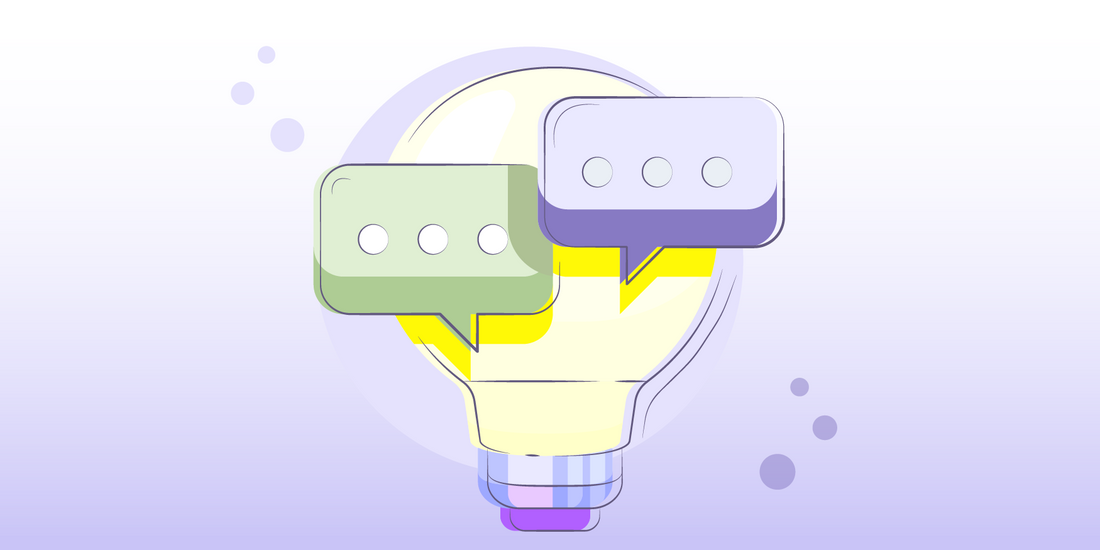When you look for the best way to fall asleep faster or stay asleep longer, where do you start?
Sure, you could ask a friend, or ideally a doctor, but most people start their search in one place: Google.
As you scroll through countless top ten lists, each promising instant success, it’s natural to feel overwhelmed. Eventually, many of the tips even begin to contradict each other.
Now, think back to some of the tips you’ve tried in the past…
How many did you have to go through before you found the one that worked? Or how many times has a tip worked for you, but not a friend you shared the tip with?
Your sleep is serious business. And although the internet is full of advice for better sleep, not every tip will work for you. That’s because your sleep is unique and has different needs depending on how your body is functioning at the time.
Plus, your ability to fall asleep every night relies on your brain producing the signals and hormones you need to catch your Zzz’s.
So, how can we interpret sleep tips to fit our individual needs and find what works for us? Luckily, a lot of research is devoted to sleep. Let’s take a look at what experts have to say about some of the top tips…

Does Aromatherapy Work?
Let’s be honest. How many times have you seen aromatherapy at the top of a sleep tip checklist? Quick blurbs about how soothing lavender or chamomile can be as soothing as a blanket…
Here’s what they aren’t telling you: When you’re stressed, your cortisol levels are through the roof.
Why does this matter?
Cortisol is not just the hormone most-associated with stress; it’s the hormone that creates it. When you have a stressful day, your cortisol pushes you into fight or flight mode, even if you’re technically safe from immediate danger. If you’re constantly stressed (let’s be honest, who isn’t these days?), then you’re constantly in that mode.
And what else does cortisol do?
It plays a big role in your circadian rhythm (sleep/wake cycle). Cortisol tells our body to wake up in the morning, the same way melatonin tells us when it’s time to go to sleep.
When you try to use aromatherapy to sleep, even if it might work for you some of the time, it won’t work if you’re stressed. This is because your hormones are out of balance.
If, however, you are in a more relaxed state of mind, aromatherapy can help you relax and set you up for a good night’s sleep.
Interested in learning more about aromatherapy? Check out our aromatherapy blog here.

Midnight Snacks
Recently, another sleep tip has gained popularity: “Eat a snack right before bed! If you’re full, you won’t wake up!”
Sounds like it would make sense, right? Turns out this one’s flat-out wrong. Nutritionists, sleep experts, and even fitness trainers all agree– it’s bad to eat before bed. That’s because your metabolism actually works slower at night. And it’s slower for a reason– your metabolism needs to rest so you can rest.
If you eat a meal late at night, you’re also more likely to have heartburn or indigestion. So if your hunger doesn’t wake you up, one of those issues could. Plus, they’ll keep you awake until that antacid kicks into gear.
And you’re more likely to choose unhealthy snacks at night as well. Because let’s face it, if you’re like most people, when you get the munchies late at night you’re usually not reaching for a celery stick or a salad.
If you absolutely need to get in one last bite before you hit the hay, try your best to make it as light and nutrient-rich as possible. And if you’re counting on food helping you sleep, forget about it.

Dollar Store Melatonin
Doctors often recommend melatonin supplements to people suffering from sleep deprivation. These pills help boost your melatonin to a stable level that promotes sleep. However, it is important to note that melatonin supplements aren’t regulated as strictly by the FDA as other over-the-counter medications.
In fact, a recent study of 31 different melatonin supplements found that the levels of synthetic Melatonin in these pills did not match the amount listed on the label.
Also, be aware that melatonin isn’t a sleep initiator–it’s a sleep regulator. So, if you take it to fall asleep quickly on an unusually rough day, you’re using it the wrong way. Sleep experts recommend using it for a month or two so that you can boost your natural melatonin levels.
Supplements are expensive. So when you see a bottle of melatonin for dirt cheap, it’s tempting to try it out… but can you rely on that bottle containing the amount of Melatonin listed on the label?
Unfortunately, no. You can’t.
If you plan to use melatonin, you should use it in combination with other nutrients that promote balanced hormones, natural relaxation, and deep, restful sleep.
And you should aim for a time-release formula so that you get the support you need to stay asleep through the night.
But time-release melatonin formulas are rare, and it takes a lot of research to find the perfect balance of natural supplements to work with melatonin and support deep, restful sleep
Which is where SleepPak can help…
A New Kind of Sleep Aid
The scientists who formulated SleepPak engineered it so that its all-natural ingredients all work in harmony with each other with steady delivery throughout the night. That means you won’t get too much of any one ingredient at once, and when it’s time to wake up you’ll feel refreshed, not drowsy.
SleepPak’s all-natural, scientifically-backed ingredients in a perfectly-balanced ratio, will help you fall asleep faster, stay asleep longer, and wake up feeling refreshed and ready to seize the day.
Ready to fall asleep naturally and wake feeling refreshed?
Click here now to get the best sleep of your life!

